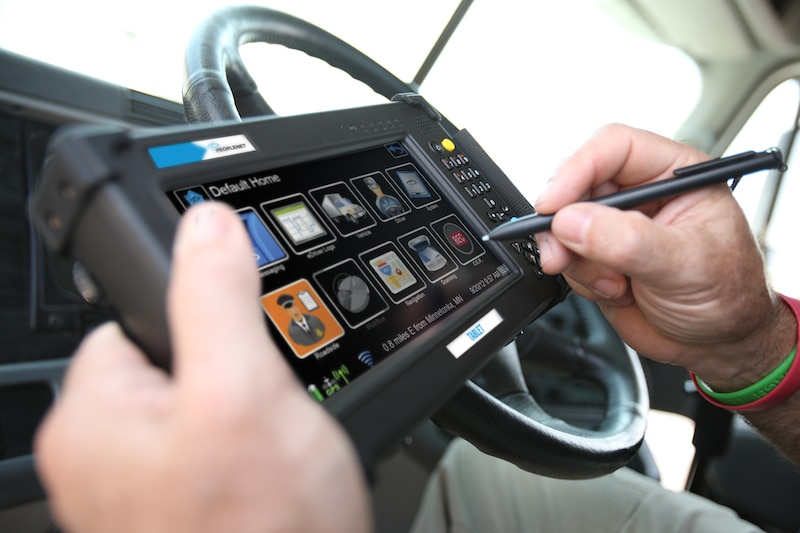An Electronic Logging Device (ELD) is device that is utilised within commercial trucking to provide an accurate and straightforward means of keeping HOS records that drivers and fleet operators are required by law to keep.
It’s very important to recognise that ELDs do not impose an extra layer of regulation on the trucking industry. Rather, these devices are designed to make an already-needed day-to-day task easier to perform.
What Does An Eld Do?
An ELD connects with the vehicle’s engine and then automatically records driving activity and updates driver logs, giving dispatchers and drivers real-time visibility into available hours as well as violation risks.
The HOS information is recorded automatically in the fleet management software where managers and office personnel are able to review HOS statuses, run reports and then create compliant routes. Also, HOS data is displayed on the tablet in the cab so that the driver may refer to it at any period of time or present it at a roadside inspection.
ELD devices capture and transmit a broad range of data points in order to make sure that businesses are noting down their hours of service accurately and are maximising available driver hours.
Vehicle Information captured directly from the vehicle:
- Vehicle identification
- Motor carrier identification
- Date
- Time
- Geographic location
- Miles travelled
- Engine power up and shutdown
- Yard moves
- 60-minute intervals of motion
- Engine diagnostics and malfunction
What Can You Utilise An ELD For?
Commercial motor carriers mainly utilise ELDs in order to record drive time and electronically log HOS, as demanded by the FMCSA’s ELD mandate. However, as ELDs record a range of informative data beyond driver logs, they are a very important component of an inclusive fleet management system. Fleets in trucking, passenger transit, food and beverage, local government, construction, as well as other industries frequently find that ELDs are incredibly effective at improving safety, efficiency together with sustainability.

How Can Elds Improve Your Business?
Electronic logging devices can help your delivery business by doing the following:
- Improves driver accountability
- Staying FMCSA compliant
- Increase routing and delivery efficiency
- Maintain vehicle usage
- Save money by reducing overtime
- 24/7 location tracking
- Automated reporting
- Lower insurance costs
Lower Carbon Footprint
ELDs are paperless so they assist companies with reducing their reliance on physical resources, much like Grand Rush casino saves on energy and other costs and resources. Companies are able to save a great deal as a result of their reduction in paperwork. Together with saving money, companies are able to reduce the risk of a costly federal audit with reliable HOS data.
Visibility Into Vehicle Activity And Driver Safety
An ELD that mixes with a cloud-based fleet management system goes far beyond tracking HOS status changes. These fleet management systems include the following:
- GPS fleet tracking features, for example real-time access to vehicle locations on a live, interactive map, making sure that managers can always stay in touch with their drivers.
- In addition, businesses are able to use dashboards, reports as well as business intelligence data in order to see what matters most to the company.





